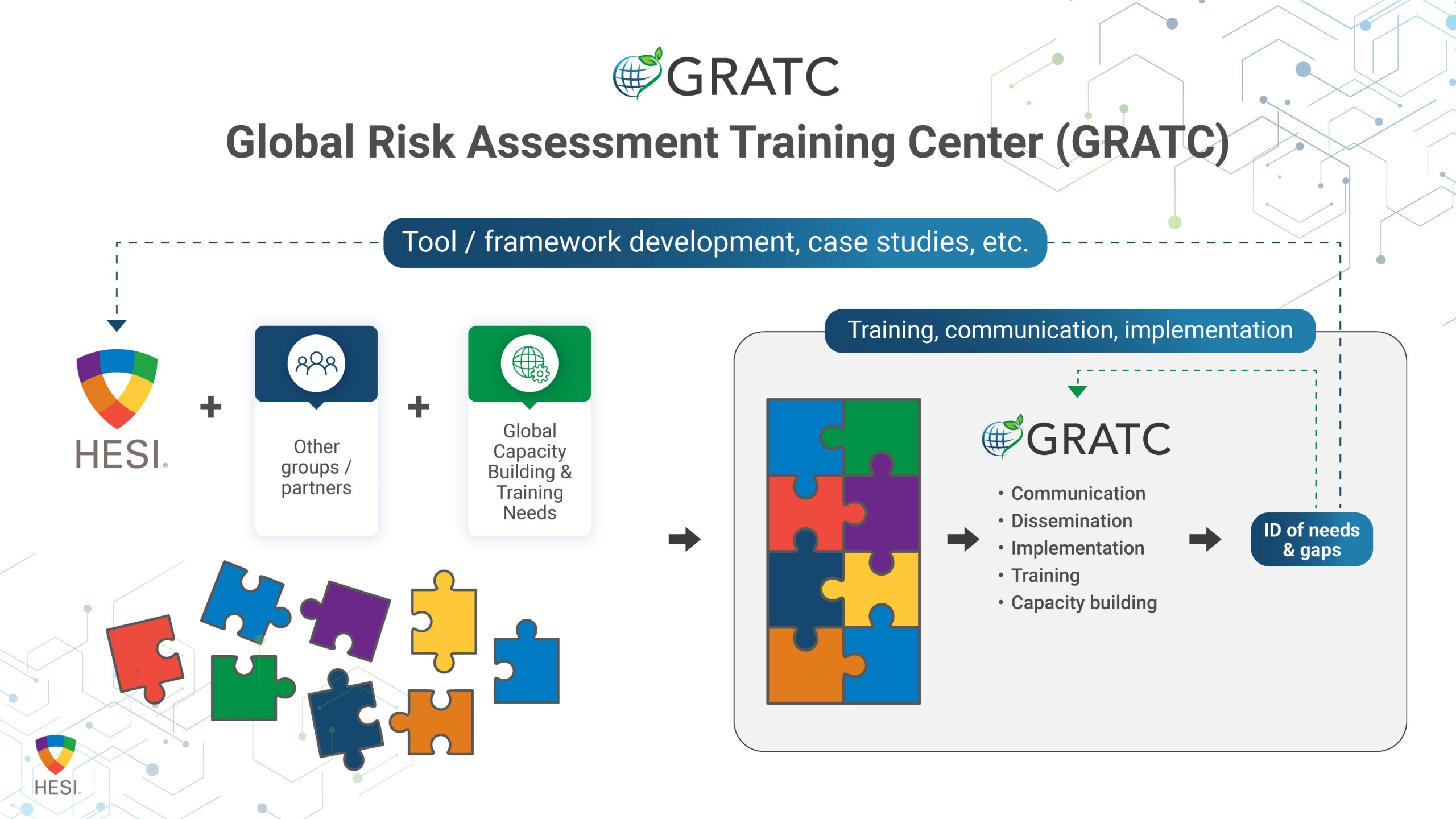Global Risk Assessment Training Center (GRATC)
GRATC’s mission is to increase access to and availability of
foundational chemical risk assessment capacity building,
training, and resources, particularly in low
and middle-income and resource-limited regions.
Background
The development of a Global Risk Assessment Training Center (GRATC) within HESI was approved by the HESI Board of Trustees in June 2021 as a mechanism to broaden HESI’s global impact and build upon existing expertise and programs within the HESI portfolio related to chemical risk assessment. GRATC officially launched in Q4 2021.
Mission
To become a leader in catalyzing the development, implementation, training, and communication of scientific approaches to chemical risk assessment on a global scale, with an aim to enhance both human and ecological health.

